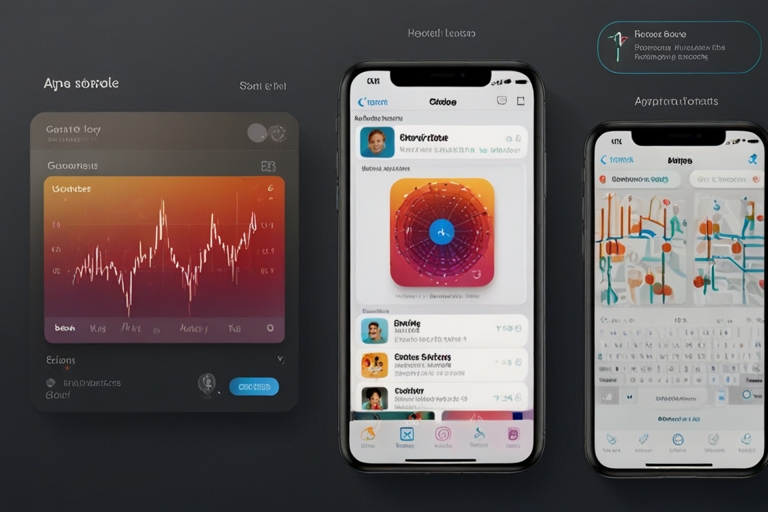
TL;DR
- Apple has begun testing AI-generated tags in the iOS 26 developer beta, improving app discoverability.
- These tags are not yet visible on the public App Store or tied to the live search algorithm.
- Appfigures analysis suggests screenshot metadata is influencing ranking, although Apple is using AI, not OCR.
- Apple confirms that screenshots and other metadata will help determine automated, human-reviewed tags.
- Eventually, developers will gain some control over tag selection to enhance App Store optimization (ASO).
Apple Quietly Rolls Out AI Tags in App Store Beta
Apple’s long-rumored plan to use artificial intelligence to enhance App Store discoverability has now gone live — but only for developers running the iOS 26 beta. These new tags, which appear to be AI-generated based on app metadata, were first spotted by early testers this week.
While these tags are not yet visible to the general public, they represent a major shift in how Apple intends to surface apps to end users. According to Apple’s WWDC 2025 announcement, the new tagging system uses advanced AI techniques to analyze screenshots, descriptions, categories, and other metadata, assigning more precise labels to apps.
This update isn’t cosmetic; it could fundamentally reshape App Store optimization strategies (ASO) and how apps rank in Apple’s ecosystem.
Screenshot Captions May Now Influence Ranking
A recent Appfigures analysis suggested that metadata extracted from app screenshots might be affecting ranking positions in iOS 26 beta search results.
Historically, app ranking was influenced primarily by title, subtitle, and keyword field entries. But Appfigures theorized that Apple was using OCR (Optical Character Recognition) to extract visible text from screenshots and using it for indexing.
However, Apple has since clarified that it is not using OCR, but rather machine learning models to understand the content of screenshots and surrounding metadata. This means developers don’t necessarily need to inject keyword-loaded captions to benefit — the AI will infer relevant descriptors automatically.
Key Elements Now Informing App Store Ranking
| Metadata Source | Used Previously? | Used Now in iOS 26 Beta? | Source |
| App Title | ✅ Yes | ✅ Yes | Appfigures |
| Subtitle | ✅ Yes | ✅ Yes | Apple WWDC |
| Keyword List | ✅ Yes | ✅ Yes | Apple Docs |
| Description | ❌ No | ✅ Yes (AI-extracted) | Apple WWDC |
| Screenshots (Text) | ❌ No | ✅ Yes (AI, not OCR) | TechCrunch |
Human Review Still Plays a Role
Despite the integration of AI, Apple has promised that human reviewers will audit tags before they go live. This is a critical element in maintaining App Store integrity and ensuring apps are not misclassified or penalized for incorrect associations.
Apple also clarified during WWDC 25 that developers will be able to select, reject, or appeal suggested tags, offering a degree of manual control while benefiting from AI automation.
“We want developers to focus on building great apps, not gaming metadata. AI tagging will improve quality without added burden.” — Apple, WWDC 25
Developers Will Soon Gain Tag Management Controls
Apple intends to give developers some authority to manage which tags are associated with their apps. This process will likely be integrated into App Store Connect, where developers can accept or revise Apple’s suggested tags.
This blend of automation and human input aims to make discoverability more accurate while reducing incentives for metadata manipulation, a persistent issue in mobile app SEO.
Early Feedback from the Developer Community
Initial responses from the iOS developer community are mixed:
- Some welcome the update, citing improved fairness in app discovery.
- Others worry about lack of transparency in how tags are assigned or prioritized.
- ASO consultants are already recalibrating strategies based on non-keyword-driven ranking signals.
According to Sarah Perez’s report on TechCrunch, Apple’s goal is to reduce developer overhead while improving search results for users.
“Developers won’t need to add keywords to screenshots anymore — Apple’s AI is doing the heavy lifting.” – TechCrunch, June 2025
Why This Matters: AI is Reshaping Mobile SEO
Apple’s shift toward AI-driven tagging signals a broader trend: search engines and app stores are reducing reliance on keyword stuffing and moving toward semantic understanding.
By training models to analyze visual and descriptive app metadata, Apple hopes to make search more relevant and less manipulable — aligning the App Store closer to natural language search expectations.
This is especially important as App Store search volume grows, and users increasingly look for apps using conversational queries.
What Comes Next?
While AI tagging is limited to iOS 26 developer beta, Apple is expected to roll it out to general users by late 2025, possibly with iOS 26’s public launch.
Key upcoming features developers should prepare for:
- Public visibility of tags in App Store listings
- AI-driven search rankings informed by deeper app context
- Ability to customize or contest AI-assigned tags via App Store Connect
- Expansion to macOS and iPadOS App Stores in 2026
Developers looking to optimize should start by improving in-app descriptions, updating screenshots with clear UI/UX flows, and ensuring accurate category placement.
Conclusion: App Store Optimization Is Entering a New Phase
With the rollout of AI-generated tags in iOS 26, Apple is signaling a new era of intelligent app discoverability. For developers, this means relying less on manual keyword placement and more on building clear, visually understandable apps backed by high-quality metadata.
While the system is still in testing, its eventual launch could dramatically level the playing field for developers who have historically struggled with App Store visibility.





